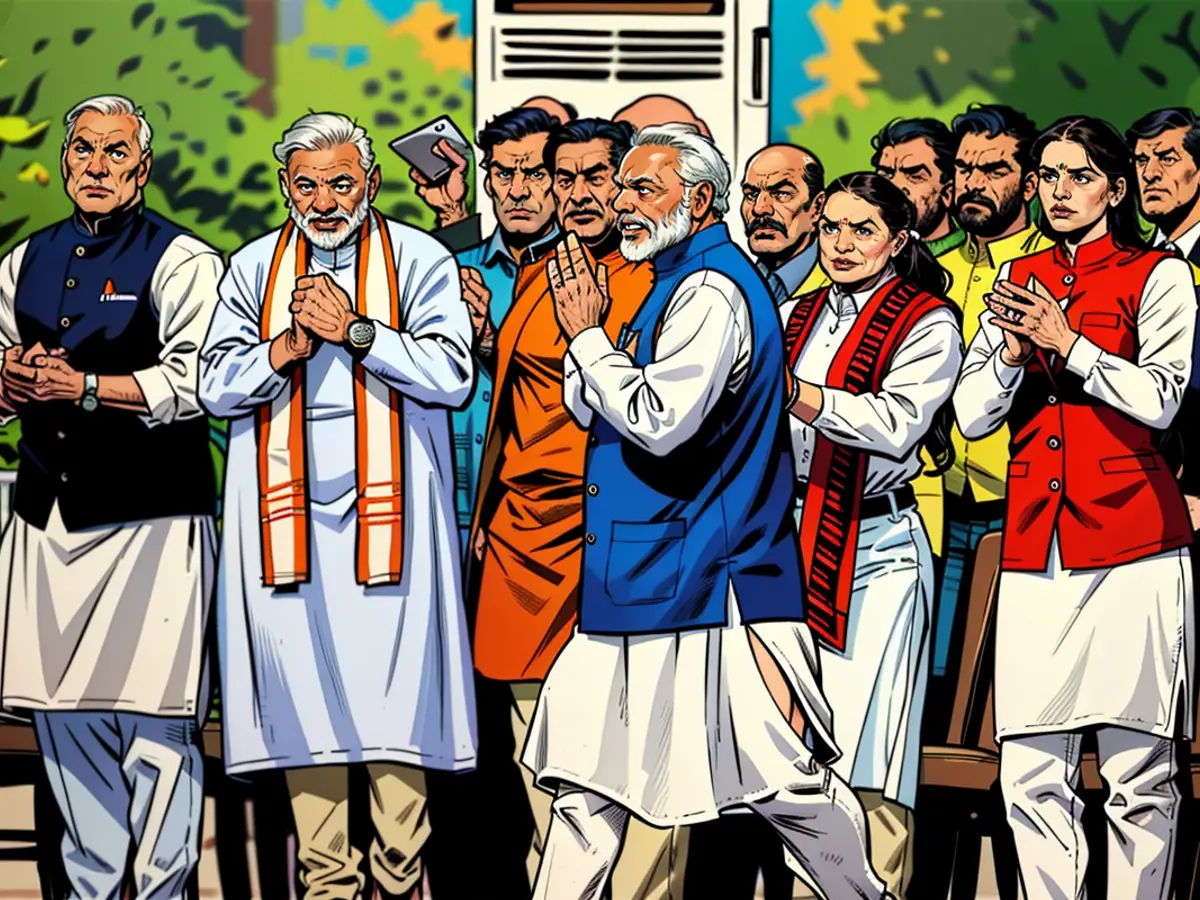Legislative elections are taking place. - India's PM Modi takes oath for a third consecutive tenure.
Narendra Modi has been officially inaugurated as India's Prime Minister for the third time. The event took place on Sunday evening in the presence of President Draupadi Murmu in New Delhi. Alongside Modi, new members of his cabinet were also sworn in. This makes him the second Indian PM, after Jawaharlal Nehru, to hold office for a third term.
Modi's BJP (Bharatiya Janata Party, or the Party of the Indian People) lost their absolute majority in the House of Commons for the first time in a decade. Despite this, they remain the largest political force with 240 out of the 543 seats up for election. With the help of their regional coalition partners, who provided them with a majority of more than 272 seats, the BJP was able to form the government.
Modi intends to prioritize economic development and the support of India's impoverished population in his upcoming term. During the election campaign, the BJP mainly used a personality cult surrounding Modi as a strong leader. They also emphasized a Hindu nationalist agenda, aimed at making India a nation solely for its Hindu majority (which makes up 80% of the population).
During his time in office, India has grown from being the world's seventh to the fifth largest economic power. However, the benefits of this growth are barely felt by the majority of the citizens. According to official statistics, more than 50% of Indians live below the poverty line and depend on government aid. Analysts noticed that the public demanded a change in direction from Modi, as indicated by their votes. His new administration is set to last five years.
Read also:
Narendra Modi's Bharatiya Janata Party (BJP) faced a loss of their absolute majority in the Parliamentary election, but managed to retain the largest political force with 240 seats. This occurred for the first time in a decade.
The new term of office for Prime Minister Modi commenced following the Parliamentary election, making him the second Indian PM, after Jawaharlal Nehru, to serve for a third term.
The upcoming term for Modi focuses on economic development and support for India's impoverished population, with the elections primarily revolving around Modi's strong leadership persona and Hindu nationalist agenda.
The BJP's regional coalition partners provided more than the necessary majority of 272 seats, allowing the BJP to form the government for another five-year term.
Draupadi Murmu, as President, played a crucial role in the Parliamentary election, swearing in Narendra Modi and the new members of his cabinet.








